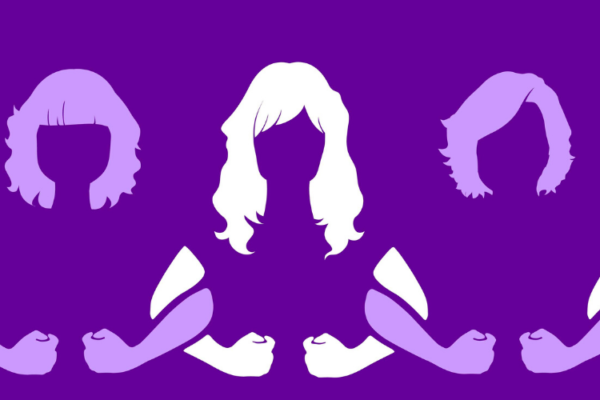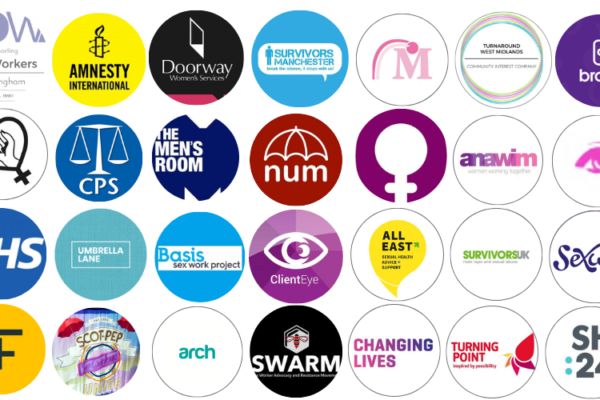While sex trafficking and sex work are often conflated, they are completely different.
People mix these two concepts so regularly that it has hurt society’s overall view of sex work and has made it difficult for sex workers to make an honest living.
That said, the worlds of sex work and human trafficking often overlap, leaving many people to wonder if it’s even possible to address human trafficking while ending the stigma against sex work.
- What is sex work?
- What is sex trafficking?
- How decriminalising sex work can reduce sex trafficking
- What to do when you spot sex trafficking
Not only is it possible, but ending the stigma against sex work and decriminalising the act may actually help reduce and effectively address human trafficking. In the article below, we’ll explain why.
Read on to learn more.
What is sex work?
Often dubbed the “world’s oldest profession,” sex work involves the exchange of money for sexual services, whether one is receiving or providing them. Although farming or hunting might have been humanity’s earliest professions, sex work undeniably has a long history, with historical records dating back centuries.
Sex work is a completely consensual activity. Sex workers willingly enter the industry and consent to these sexual and erotic services. These services can range from sexual acts and physical activities to erotic art such as pornography or online content.
As you can tell, sex work is a wide industry that includes erotic dancers, escorts, erotic actresses, and content creators. In our digital age, sex work has adopted an even more expansive definition, with people gaining access to outlets and entry points that were previously unavailable.
Some may choose sex work because they are passionate about the industry and enjoy exploring their sexuality as a profession. Others may turn to it out of economic necessity and a dearth of alternative opportunities. However, there are also those who are coerced into this industry.
While different from sex work, sex trafficking often overlaps with it.

What is sex trafficking?
There’s a dark side to the sex work industry. While many professionals choose to engage consensually, others endure forced entry into sex work, a phenomenon known as sex trafficking. It is a major hurdle to decriminalising and ending the stigma against sex work.
Many people are forced into sexual slavery every year, and this is a major problem worldwide. It is a non-consensual exploitation, with victims unwillingly subjected to the sale of their bodies for sexual acts and services.
However, the current laws in place criminalising sex work in an attempt to reduce human trafficking have actually been doing the opposite. Not all sex work is human trafficking, and it’s critical for society to understand that, as this distinction will make it much easier to tackle the sex trafficking issues that plague the world.
Not all sex work is sex trafficking
It’s common for people to mix up sex work and sex trafficking. However, this is a dangerous conflation as these are two completely different things.
To better understand why, here are some of the main differences between sex work and sex trafficking:
- Sex trafficking involves non-consensual activities, whereas sex work is consensual
- Individuals engaged in sex work have the freedom to exit the industry at their discretion, whereas trafficked individuals lack this choice
- Sex workers autonomously determine their working conditions, while trafficked individuals are coerced into their circumstances
- Sex workers operate independently, whereas trafficked individuals work for a trafficker who typically does not compensate the victimAll sex workers are aged 18 or older, whereas trafficked individuals may sometimes be below the legal age
How decriminalising sex work can reduce sex trafficking
While many trafficked individuals are smuggled into the sex work industry as legitimate workers, criminalising sex work as a whole isn’t the answer to the trafficking crisis. In fact, the harsh laws on sex workers make it much more difficult for authorities to distinguish legitimate workers from trafficked individuals, which means fewer people are removed from these inhumane conditions.
This is why many individuals advocate for the decriminalisation of sex work as a strategy to combat human trafficking. While it might appear unorthodox, this proposal holds some promise.
Here are a few ways decriminalising sex work may aid the fight against human trafficking:
Regulations & standards
First of all, the decriminalisation of sex work would allow government agencies to actively enforce regulations and industry standards on the industry. For example, authorities can mandate that workers must register before providing services, preventing trafficked individuals from registering and significantly simplifying the detection of human trafficking operations.
Moreover, decriminalising the profession grants sex workers more rights, creating a safer environment for everyone in the industry.
Easy access to support
Many trafficked individuals are reluctant to seek assistance due to the fear of facing persecution for their involvement in sex work. Decriminalising sex work would empower workers to more readily seek help when they are subjected to trafficking or abuse. This increased accessibility to support enables agencies to respond promptly and swiftly dismantle trafficking operations.
Spread awareness of the difference between sex work and trafficking
Decriminalising sex work would educate more individuals about the distinctions between legitimate sex work and unlawful human trafficking operations. This approach would mark the beginning of dismantling the unfair and harsh stigma associated with sex work, while simultaneously fostering safer work environments for individuals in the industry.

What to do when you spot sex trafficking
Human trafficking remains a serious problem, with numerous victims each year. If you suspect that someone is a victim of human trafficking, ensure you call the human slavery hotline (08000 121 700) or contact the police. The faster we report these crimes, the sooner authorities can take action.
However, remember that the fight against human trafficking goes further than just reporting any instances you find. To effectively combat human trafficking, we must proactively shift our approach and rethink our assumptions about sex work. Only through these efforts can we come together and put an end to human trafficking.





